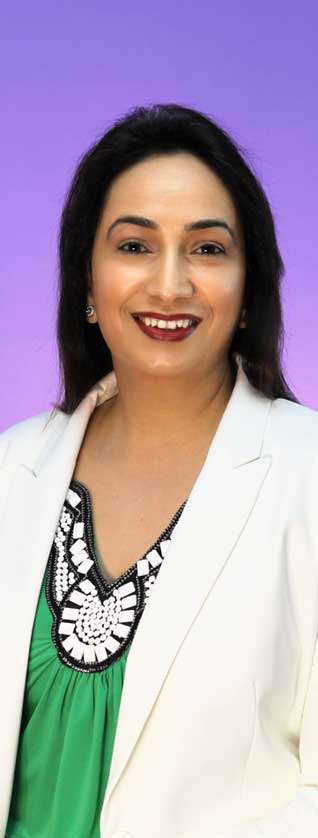People
Beautiful Lives - IV:
Prabhjot Kaur,
Media & Women’s Advocacy -
The Kaur Project
THE KAUR PROJECT
PRABHJOT KAUR
Being a Kaur involves being a role model, a mother, and a string of so many other roles that lies in fundamentally being a good person. The sad thing is that women rarely get that much recognition for everything they do. In my opinion, some times women can be their own worst enemies. There is this internal strife with women, focused on comparison and pushing women down. This needs to stop. There is room for everyone, we must encourage one another. We need to be role models for one another, as there is so much to do and accomplish.
As someone who has worked in media, I have had people, especially women, share their stories and ask for help like connecting with resources. At times I am anguished with the details I hear, it saddens me, but I am willing to listen and help if I possibly can. Just sharing their stories sometimes is what is needed.
I came to Canada as a single woman with a Ph.D in Political Science (Gender Equality in Politics) in hand. My parents, who were well educated, were supportive of me pursuing higher education. They constantly heard concerned remarks from community members about allowing girls to pursue more education would provide opportunity to bring shame on the family or that I was getting beyond eligible marriage age. These types of micro-aggressions are roadblocks for so many women. My parents didn’t buy into it, they continued to support me.
My thesis focused on the new legislations amendments at the time in relation to women, education, and power roles, like the sarpanch (village elder) back in Punjab. A big focus for me was in interviewing and understanding the complexities about the decades of gender differences and how there was a fear of change.
I had heard rumblings about the Canadian dream, while I was doing my studies and decided to try it out upon completion. I wanted to carve out my own space and take my own stance.
I was lucky my interview skills came in handy to give me a role in media. I recall my first interview being with a well-known male and his attempt to tell me that I should or could find better use of my time, rather than reporting. That didn’t stop me, but it made me think this difference in males and females in our community, is it ever going to change? Our community has been here for a century, when will respect by our own community be given to both males and females, equally?
Equality is fundamental to our religion, but sadly its not followed by all. I am of the belief that it doesn’t matter how many times you do your prayers, it is how you live your life that really matters. We need to look deeper into the real meanings and not just go through the motions.
[Courtesy: Saji Kaur Sahota & Jessie Kaur Lehail, The Kaur Project. Edited for sikhchic.com]
February 20, 2017
Conversation about this article
1: Ajit Singh Batra (Pennsville, New Jersey, USA), February 21, 2017, 4:03 PM.
The key element of Sikhi is equality-oneness of human life. Our Gurus wanted to solve all problems, social and political, based on equality. It is social conscience that needs to be built on the foundation of equality. I admire Prabhjot Kaur ji's parents who did not yield to community pressures for halting higher education being pursued by their daughter. High education in males and females has always been valued in our community; we need to ensure that it is so also in the lesser educated segments of our community.
2: Sangat Singh (Kuala Lumpur, Malaysia), February 22, 2017, 11:17 AM.
When #4 appeared in this series, this once I had to chew the cap off my ball pen waiting for a tuk (verse) to appear. Normally it comes instantly. Prabhjot ji, you have the antecedents and a comfortable niche and a PhD to boot. I am sure you had a few options where to plant yourself. But it is Waheguru who decides what is good for you. “mataa kaarei pachham kai taa-ee poorab hee lai jaat hai” [GGS:496] - 'You decide to go West but Waheguru decides to lead you to the East.” You also share the name Prabhjot Kaur with the eminent Punjabi author and poet. She was 92 when she passed away in 2016.



